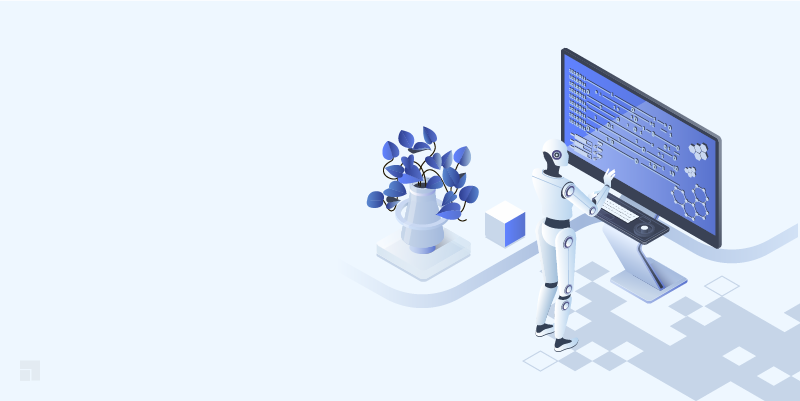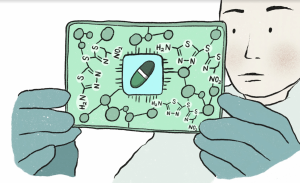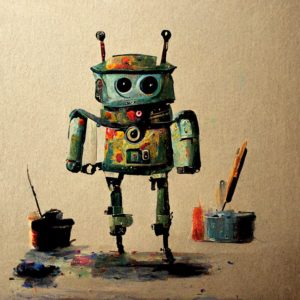Automation generates the future of the workplace
Deepak Pal
The rise of automation and artificial intelligence in recent years has sparked debate regarding their economic and ethical implications.
February 1, 2023
In an age of information and technological advancement, automation and artificial intelligence have made immense strides in the workplace, while raising questions about the effects and ethics of integrating machines into the modern business.
Automation has witnessed explosive growth in the past decade: according to the International Federation of Robots, the quantity of robots installed annually has more than doubled from 254,000 units in 2015 to 517,000 units in 2021. And with the development of revolutionary innovations in technology, the prevalence of automation is expected to continue following this increasing trend. For instance, in November 2022, OpenAI launched its groundbreaking ChatGPT AI, which has already been used by nearly 30% of professionals at work, according to a report from The Hill. And in December 2022, McDonald’s launched its first automated restaurant utilizing kiosks and conveyor belts to deliver food to customers.
One of the main benefits of automation is that it increases the efficiency of production; per a report published by McKinsey & Company, the ability of automation to boost both the speed and quality of production leads to an estimated 0.8-1.4% annual increase in productivity.
“Automation allows for faster production and makes resources typically at lower costs, so more can be made,” DVHS AP Economics teacher Daniel Farmer explained. “Since machines don’t need to get breaks and just need repairs, from a business owner’s perspective, it’s cheaper.”
Yet, the adoption of machines to automate tasks raises ethical and economic concerns regarding automation taking away jobs from human workers. According to Forbes, automation has the potential to displace tens of millions of jobs in diverse fields including finance and manufacturing.
“Currently, automation is likely to affect jobs without much human input, like delivery and factory jobs,” DVHS senior Anirudh Tenneti noted. “But theoretically, if the technology advances far enough, a lot of jobs could potentially be replaced.”
Despite this, some argue that automation can create new jobs and stimulate economic growth, outweighing the effects of unemployment. As the World Economic Forum notes, while 85 million jobs worldwide could potentially be displaced by 2025, the advancement of automation and artificial intelligence will create an estimated 97 million new jobs in the same timeframe; furthermore, researchers predict that the implementation of automation can increase global GDP by up to 26% by 2030.
“Automation typically decreases unemployment,” Farmer said. “For the jobs that were replaced by automation, those go away. But with automation, there need to be workers to repair and program and design those machines. So unemployment, like with the Industrial Revolution, typically went down, because all those machines start breaking down or need to be repaired, or need to be designed.”
However, the unemployment effects of automation for different socioeconomic groups are still debated. According to an analysis conducted by MIT, in the past four decades, automation accounted for 50-70% of the growth of the income gap between higher-educated workers and lower-educated workers.
“While automation decreases unemployment, it increases unemployment for people that don’t have that level of education or training to work on those machines,” Farmer added.
Apart from the economic ramifications, others point to ethical concerns regarding the advancement of automation, specifically the potential lack of human interaction in the workplace.
“While there are huge potential advancements in many areas like science and medicine, the biggest drawback lies in people becoming disconnected with humanity. There are huge potential downsides for people to be isolated and lonely, if they don’t need another human because a computer will be their companion or do things for them,” DVHS AP English Language teacher Megan Keefer noted. “There can be major downfalls with interpersonal relationships.”
Thus, while the benefits of automation on efficiency and productivity are evident, the economic and ethical questions of widespread implementation remain uncertain.
“It’s a learning process, because it takes companies a while to figure out what machines they would actually use, which ones would actually be helpful. Just because you can buy a machine doesn’t mean it’s actually helpful,” Farmer explained. “There’s a big learning curve.”




